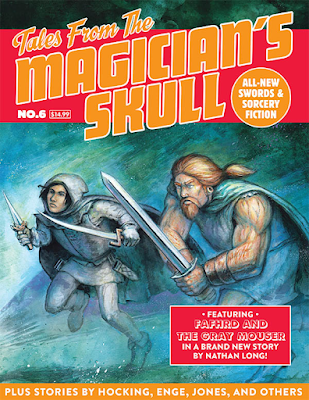Humans are on a path of upward progress. This is a good thing. We enjoy material comfort and personal levels of wealth unimaginable 200 years ago. We’re living longer, in less pain and with less physical suffering, than any generation prior. I’m not denying the looming potential catastrophes of China saber-rattling and the deteriorating climate. But I’m hopeful that cooler, economic heads will prevail, and the latter will be solved through emerging tech and greater corporate responsibility.
But, we lose things along this path of progress, too.
As a kid growing up in Reading, Massachusetts I had access to a bookstore that was so much more than just a place to plunk down your nickels. My memories are wreathed in a blanket of nostalgia so thick and cloying that they are likely unreliable, but for me and a few friends this bookstore was a place of wonder.
I remember the smell, musty but not foul, the one you get when you thumb the pages of an old book near your face and let the breeze riff your hair. I remember the creaking floorboards under my feet. And the sprawling, semi-disorganized riot of it all, old and new titles and wild and fantastic covers colliding in color.
This bookstore carried tons of comics, all the new stuff on display, but reams of back issues, boxed and bagged, ripe to explore. Its book inventory was mostly second-hand, and I was eventually able to buy most of the Lancer Conans and many other old paperbacks too. Dungeons and Dragons and other assorted role playing games could be had. It carried Dragon and White Dwarf, which allowed us to keep up on the RPG news of the day. This was a place to learn.
Money was a limiting factor so we’d spend a lot of time looking through the massive collection of books and comics, reading, observing. I would eventually buy 3-4 issues of Savage Sword of Conan, perhaps, as many as I could afford, and trek home, barely able to contain my excitement at the reading I had ahead. I would stop for a can of soda at the firestation. This had a side door, open to the public, and the soda machine was programmed I think for 40 cents a can, 15 cents less than the corner drugstore. That’s a big difference when you’re living off an allowance or lawn mowing wages.
I’d go home, put my feet up on my desk, and get lost in the Hyborian Age, or the Avengers mansion, or the weird stories told in Heavy Metal or Epic illustrated magazine.
Life was moving slowly, but it was great.
You probably know what is going to happen next. That old bookstore succumbed to soaring real estate values. The owners probably couldn’t afford the rent anymore, or it might have been that the book traffic was getting sucked to the malls of a couple neighboring towns. I don’t know. But one day it closed, and eventually the building in which it stood along with a few other businesses was razed, and replaced with a … bank. Commerce won the day.
This was near the time that the likes of Barnes and Noble and later Borders were eating up all the book traffic. But soon even those far more standardized, safe, generic bookstores that ate up the little guys would themselves suffer the same fate, succumbing to the grinding wheels of Amazon and online efficiency and convenience.
Maybe I’m just romanticizing a time that I’ll never get back to, or I'm becoming an old fart. Probably both. But I feel like I’m not just reliving lost and fond memories of childhood, but rather remembering a real time that was markedly different. One where I could just be. Before the Great Distraction.
The internet and its subsequent rapid adoption and proliferation has changed the nature of human interaction in ways we really don’t understand. Life was moving slower then. We learned differently, through books and word of mouth, inherited wisdom, or a once daily newspaper or evening newscast. Not an iphone. I know others feel like I do, that sustained reading is much harder today than it used to be.
We were also seemingly much less angry. Yes, humans fought a lot, in terrible wars. But the long spaces between were not filled with what they are now, unending nastiness and pettiness and virtue-signaling and screaming about injustices and offenses, 24-7.
We’ve lost something that we will never recover.
J.R.R. Tolkien understood this. We move from magic to modernity, from superstition and myth to reason and science, and lose something beautiful. It’s inevitable, and many new things are beautiful, but during this process we discard the old. And it’s sad.
It’s OK to mourn and honor the past, even as it slips through your fingers.


